What are the best spy novels of 2016? During the course of the year, we’ll review the top espionage thrillers, some of which may become bestsellers and others that are great reads but not as well-promoted.
Note that this list leans toward historical spy fiction with a literary flair.
The Other Side of Silence by Philip Kerr – TOP SPY NOVEL OF 2016
Philip Kerr had to be persuaded by his publisher to continue his series of Bernie Gunther novels. His latest (his eleventh), The Other Side of Silence, proves that Kerr made the right decision, at least as far as his readers go—it’s a clever, entertaining thriller that also zeros in on the sorry state of British intelligence in the mid-1950s and touches upon some of the morally-suspect Cold War bargains made by both sides of that protracted conflict.
Kerr has no use for the fiction—advanced by Ian Fleming and John le Carré among others—that the post-war British Secret Intelligence Service (MI6) was particularly effective or competent, or that it deserved the trust or respect of the American intelligence community. (The BBC’s recent video release of British traitor Kim Philby describing MI6’s lax security to a group of East German spies underscores the awkward, and ugly reality of the dysfunctional and compromised agency.)
As The Other Side of Silence opens in 1956, Kerr’s cynical protagonist, Bernie Gunther, is working as a concierge at Grand-Hotel du Cap-Ferrat on the French Riviera during the summer of the Suez crisis. Gunther’s checkered past as a Berlin cop, private detective, and (coerced) SS officer once again catches up to him. He’s blackmailed into helping the famous British novelist W. Somerset Maugham deal with a blackmailer threatening to expose Maugham’s connection to England’s gay demimonde (homosexuality is a crime in mid-century Great Britain).
Gunther quickly learns of the Maugham’s tangled history with both MI6 and members of the Cambridge spy ring, those upper-class Brits—like Donald Mclean, Guy Burgess, and Philby—who betrayed their class and country by spying for the Soviets. The Other Side of Silence is filled with plenty of intriguing twists and turns, a fair bit of black humor, and an uncompromising perspective on the ugliness of European history in the 20th century.
Like his hero, Kerr is a populist at heart, and he paints a devastating portrait of the arrogant and dimwitted upper echelons of Anthony Eden’s England. Gunther wisecracks somewhat less and ponders life somewhat more than in Kerr’s earlier novels and yet he notes: “Experience has taught me that it’s better to be serious and I should know; I’ve tried and failed to be serious on thousands of occasions.”
The Divided City by Luke McCallin
Post-World War II Berlin has attracted the attention of noted thriller authors Joseph Kanon, John Lawton, and Philip Kerr. In The Divided City, Luke McCallin brings his protagonist, ex-intelligence officer Captain Gregor Reinhardt, back to Berlin in 1947. Like Kerr’s Bernie Gunther, Reinhardt served on the Weimar-era city police force and has a checkered wartime past (in Reinhardt’s case, involving his actions in the Balkans).
The Divided City captures the Hobbesian-environment of Berlin in the early years of the Allied occupation. With much of the city in ruins, residents do what they have to in order to survive. Reinhardt, back on the police force, is tasked with solving a series of gruesome murders of former Luftwaffe personnel. In doing so, he attracts the interest of British, American, and Soviet intelligence—to say nothing of a band of embittered German veterans.
McCallin’s considerable strengths as a novelist lie in his evocative prose and memorable characterizations. His plotting, is, in a word Byzantine; I’ll confess to having gotten lost at times in following the complex twists and turns of the story. Yet The Divided City is still an intriguing read, filled with suspense and a compelling cast of characters.
The Girl from Venice by Martin Cruz Smith
Martin Cruz Smith’s latest thriller, The Girl from Venice, features a mythic opening. It is 1945 in Italy and the end of the war nears. A fisherman, Cenzo, finds a beautiful young Jewish woman, Giulia, floating mermaid-like in the Venice Lagoon, and quickly discovers that she is on the run from the Germans and their Italian Fascist allies. Cenzo decides to shelter the woman, and that decision not only opens wounds from his past, but plunges the couple into the turmoil surrounding the final days of Italian dictator Benito Mussolini.
The novel straddles several genres: it’s a mystery, but also a romance, with elements of a spy thriller. Smith gets the details right. Whether it’s the craft of fishing at night, or the art of forgery, he seamlessly blends fact and fiction. He has few illusions about the human condition, and Smith is at his best when he portrays the corrosive effects of greed and corruption on people.
At the same time, The Girl from Venice illuminates the powerful pull of love, romantic and familial, and touches upon themes of loss, betrayal, and redemption. The novel is an engaging read, and Cenzo and Giulia are wonderfully-drawn characters.
The Unfortunate Englishman by John Lawton
Writing an effective sequel can prove to be can be a tricky thing: provide too much backstory, and readers who enjoyed the initial book may be bored or turned off; offer too little context, and new readers may be lost. Making sure that the “next book” stands by itself isn’t easy.
The challenges of crafting a seamless sequel are apparent in The Unfortunate Englishman, a spy thriller by John Lawton. His cynical protagonist, Joe Wilderness, is tasked by British intelligence to return to Berlin in 1965 to negotiate a spy exchange. Wilderness has a checkered past in Germany (a failed romance, involvement in the black market) and proves willing to cut corners, legal and ethical. The narrative jumps around in time, as Wilderness tries to complete his mission for MI6 while resolving unfinished business involving a pre-Wall smuggling operation.
There’s a lot to like in The Unfortunate Englishman. Lawton is a clever and talented writer, with a dry English sense of humor, and an ear for dialogue. He paints a convincing picture of Cold War Berlin. The book’s plot line can be hard to follow, however, made more complicated by the numerous flashbacks, and I found myself wishing that I had read the first Joe Wilderness novel, Then We Take Berlin.
A Hero of France by Alan Furst
Alan Furst’s A Hero of France brought to mind one of my favorite novels about the Second World War, H.E. Bates’ Fair Stood the Wind for France, first published in 1944. Bates told the story of Franklin, the pilot of a downed RAF bomber, and his quest to escape from occupied France. Furst’s latest elegantly-written historical spy thriller also focuses on Resistance efforts to shelter and exfiltrate British airmen shot down over France.
A Hero of France begins in 1941, before Hitler had turned on Stalin and when French Communists had been instructed not to oppose the Germans. It’s a time when only Gaullists are resisting the Nazi occupiers. Furst’s protagonist, Mathieu, leads a Resistance group in Paris that has established an escape line to Spain but, as he is reminded by an arrogant English spy, such cells are typically discovered within six months. Before long, a French-speaking detective from Hamburg is dispatched to France to help the German military police hunt down Mathieu and his people, and it seems it’s only a matter of time before the operation is betrayed.
Mathieu is a typical Furst hero: vital, intelligent, well-educated, attractive to women, and reluctantly drawn into the violence necessary for clandestine work. Through his eyes, we see how living under occupation alters behavior: how some people collaborate, some seek to profit, some have the courage to resist (passively and actively) and some just hope to remain neutral and sit out the war. The backdrop is Paris, the City of Light, and Furst once again paints a brilliant and admiring portrait of the city, capturing its sights and sounds.
French historians and intellectuals have debated the extent and effectiveness of La Résis (largely since the 1960s), with many suggesting that antisemitism and collaboration with the Nazis was much more widespread than had been acknowledged, and that the number of French in the Resistance had been grossly exaggerated. By its very title, A Hero of France suggests where Furst comes down on this question. He reminds us that there were indeed those who risked all and put their lives on the line to fight the Nazis, both in occupied and Vichy France. They were helped in small and large part by many of those around them. The Resistance may have not been as large in numbers as legend or myth would have it, but there were heroes, and Furst’s novel is a fictional reminder of that reality.
An Honorable Man by Paul Vidich
Paul Vidich has set his first novel in 1953 Washington, D.C., during the early Eisenhower Administration, when Sen. Joseph McCarthy represented a powerful presence in the Capital, and the FBI sought to surface clandestine Soviet agents in the government. The protagonist of An Honorable Man is a burnt-out CIA agent, George Mueller, who has been assigned to a team hunting for a mole, code named Protocol, inside the Agency. CIA officials want to catch the double agent without alerting the witch hunters in Congress. As the investigation begins, Mueller realizes that he may not be above suspicion himself—and finding the penetration agent is the only way to clear his own name.
An Honorable Man is a solid, and entertaining, spy thriller. Mueller and the supporting characters are well-drawn. Vidich handles the action scenes in the novel with aplomb, although at least one—set at a Russian Embassy summer house—seems a bit forced. Nonetheless, An Honorable Man‘s intricate plot turns will keep the reader guessing at the identity of the “traitor within” until the very end.
Some advance reviewers have likened Vidich to John le Carré (the lazy clichéd comparison often used for espionage novelists). In fact, Vidich’s noirish prose style is closer to Olen Steinhauer’s, and for plot twists he borrows more from Raymond Chandler than le Carré.
The Travelers by Chris Pavone
Chris Pavone’s latest effort is a strange, and entertaining, mixture of spy tech fantasy, comic takes on Manhattan life, and meditations on the tensions of modern marriage. If you’re looking for a realistic spy story, one that delves into how intelligence agencies work today, this is not the book for you. With its breathless, hidden conspiracy-driven plot, The Travelers is closer to the spirit of Dan Brown’s The Da Vinci Code, than to traditional espionage fiction.
The Everyman protagonist of The Travelers is Will Rhodes, and His Hero’s Journey takes him from innocent travel magazine writer to hunted man on the run. Along the way, Pavone treats us to some funny riffs on New York media people, Brooklyn hipsters, American tourists in Europe, fitness-crazed trophy wives, and backstabbing office politicians. It’s easy to lose track of the plot twists—some which call for an ample suspension of belief—because they keep coming, but all is resolved in the end.
If you’re in the market for an escapist thriller, with sly asides about The Way We Live Today and detours to Argentina, Iceland, and Sweden, you can’t go too far wrong with The Travelers.
Here are past lists of top spy thrillers. You can click for:
Ten classic British spy novels
Copyright © 2016 Jefferson Flanders
All rights reserved
Click to view the video trailer for Jefferson Flanders’ critically-acclaimed: First Trumpet Cold War trilogy.
Click to purchase the First Trumpet novels: Herald Square, The North Building, and The Hill of Three Borders.
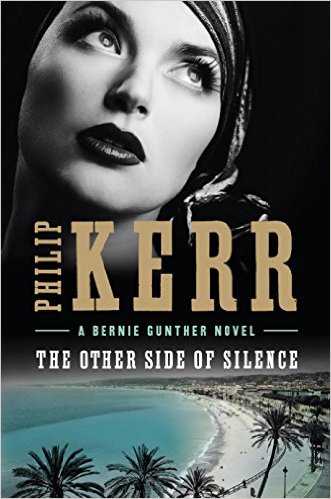
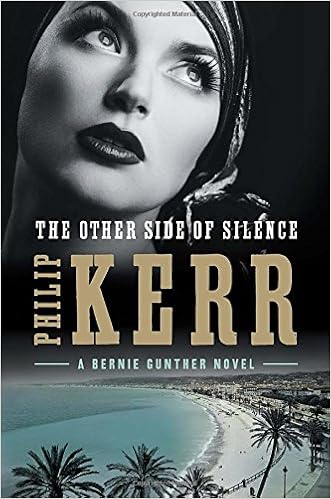



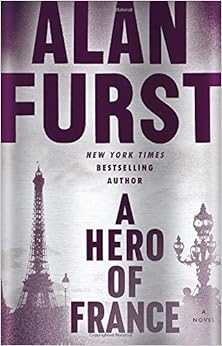
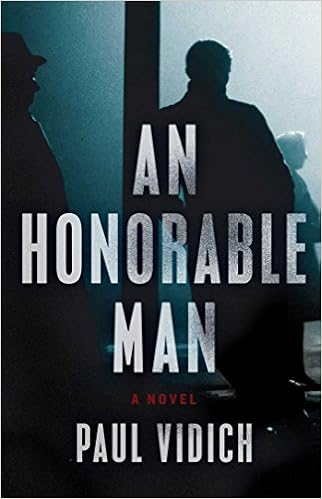
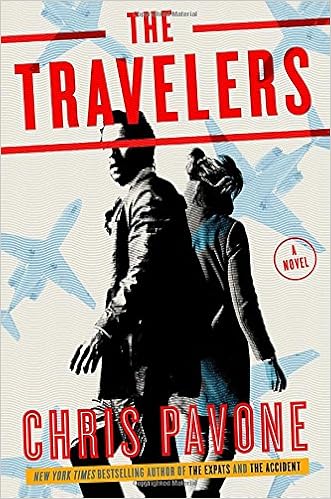
0 Comments
4 Pingbacks